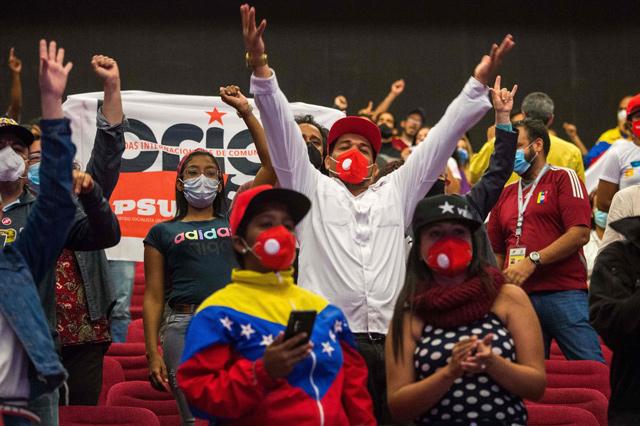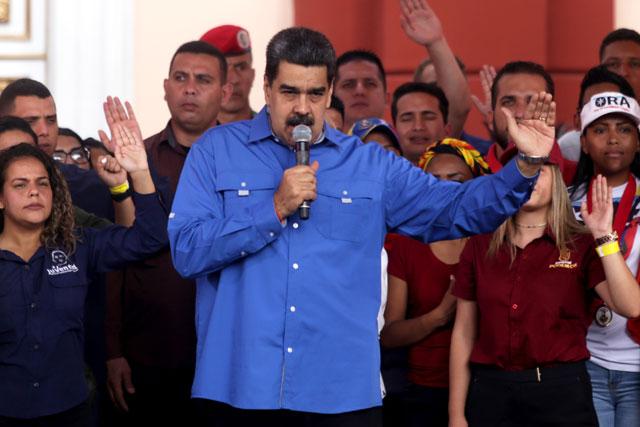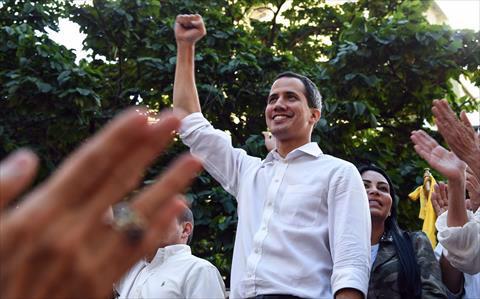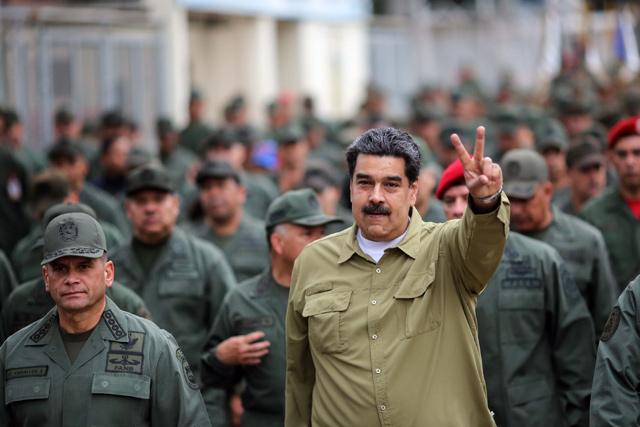You are here
Boycott-tainted poll win gives Maduro total control in Venezuela
By AFP - Dec 07,2020 - Last updated at Dec 07,2020

Supporters of the Socialist United Party of Venezuela (PSUV) react to the legislative election results in Caracas on Monday (AFP photo)
CARACAS — President Nicolas Maduro seized total control of Venezuela’s political institutions on Sunday with a sweeping victory in legislative elections that were boycotted by the main opposition parties.
Maduro and his left-wing allies had 67.7 per cent of the vote with over 80 per cent of ballots counted, while the opposition bloc which broke the boycott had 18 per cent, National Electoral Council President Indira Alfonzo said.
Turnout was low with 69 per cent abstaining.
Sunday’s predictable triumph gives Maduro’s ruling Socialist Party control of an expanded 227-seat national assembly, the only official body held by the opposition.
It further weakened US-backed opposition leader Juan Guaido, who led the boycott after calling the vote “a fraud”.
Maduro told reporters after voting in Caracas’ main military barracks that it was time to end the opposition’s domination of an assembly responsible, he said, for “the plague of sanctions, cruelty, pain and suffering”.
US Secretary of State Mike Pompeo denounced the polls as “a fraud and a sham” engineered by Maduro.
“The results announced by the illegitimate Maduro regime will not reflect the will of the Venezuelan people,” wrote Pompeo on Twitter.
Brazilian Foreign Minister Ernesto Araujo tweeted that the vote was an “electoral farce” and an attempt by the Maduro “dictatorship” to legitimise its rule.
Canada and the Organisation of American States said they would not recognise the result.
“Canada will always stand with the people of Venezuela in their fight to restore democracy,” Foreign Minister Francois-Philippe Champagne said.
Washington, Guaido’s main ally, is leading pressure to oust Maduro with economic sanctions, including an oil embargo in force since April 2019.
Maduro called on the opposition “with one voice, to ask the new US government of Joe Biden to lift all the sanctions”.
The opposition has controlled the national assembly since 2015.
Maduro sidelined the body in 2017 by creating an all-powerful constituent cssembly stacked with his supporters. The supreme court meanwhile declared legislation passed by the national assembly null and void.
Crippling crisis
The election, contested by about 14,000 candidates from more than 100 parties, comes with the country in a deep political and economic crisis — suffocated by runaway inflation, paralysed in endless queues for petrol, lacking water and gas supplies, and afflicted by sudden power cuts.
Since November 2019, inflation has reached 4,000 per cent.
Venezuela has been hard-hit by the COVID-19 pandemic, and voters were required to wear masks inside polling stations, where the floors bore markings to ensure social distancing was maintained.
The longest lines were in Socialist Party bastions such as the 23 de Enero neighbourhood in Caracas.
In some cities, however, there were more people joining the ever-present lines at gas stations than to vote, reflecting the country’s crippling economic crisis.
“This is a humiliation, I’m not going to vote,” Jose Alberto told AFP after waiting for hours at a gas station.
Weary population
Maduro, a former bus driver who became president on the death of his mentor Hugo Chavez in 2013, was reelected in 2018 in fraud-tainted polls — also boycotted by opposition parties — a victory that much of the international community branded illegitimate.
The United States, the European Union and many Latin American countries have long blamed Venezuela’s crippling economic crisis on Maduro’s repression and misrule.
They backed Guaido when the national Assembly speaker proclaimed himself interim president in January of last year.
Guaido, 37, called on voters to stay at home on grounds that “free and fair” conditions for holding elections do not exist.
“Maduro’s objective isn’t even to gain legitimacy,” he told AFP in an interview this week, adding that the goal was instead to simply wipe out all semblance of democracy.
Guaido and his allies plan a week-long plebiscite from Monday seeking public support to prolong the mandate of the current national assembly until “free, verifiable and transparent” elections can be held.
However, the results will not be binding, as Maduro exercises control of the country’s institutions, including the supreme court and the powerful military.
Initial enthusiasm that greeted Guaido’s push for power has waned, and critics now see his plebiscite ploy as a desperate gamble.
Defeat is likely to leave Guaido increasingly isolated, analysts say — not least because he will lose the leadership of the national assembly, on which he based the legitimacy of his presidential ambitions.
Maduro’s victory will be greeted by his foreign allies Russia and China as lending his regime legitimacy, as well as a legal framework to their agreements that help circumvent US and EU sanctions, analysts say.
Some opposition dissidents who criticised Guaido for calling the boycott took part in the election, despite being accused of lending Maduro legitimacy.
“They are going to represent the new opposition after January 5” when the new legislature takes office,” said political scientist Jesus Castillo.
Related Articles
CARACAS — Venezuela’s opposition leader Juan Guaido on Wednesday defended foreign sanctions against his country 24 hours after he was attack
CARACAS — Venezuela’s opposition leader and self-declared acting President Juan Guaido said on Saturday it is unlikely he will resume negoti
CARACAS — Venezuelan President Nicolas Maduro hit out on Wednesday at military “mercenaries” he says are conspiring to divide the armed forc














